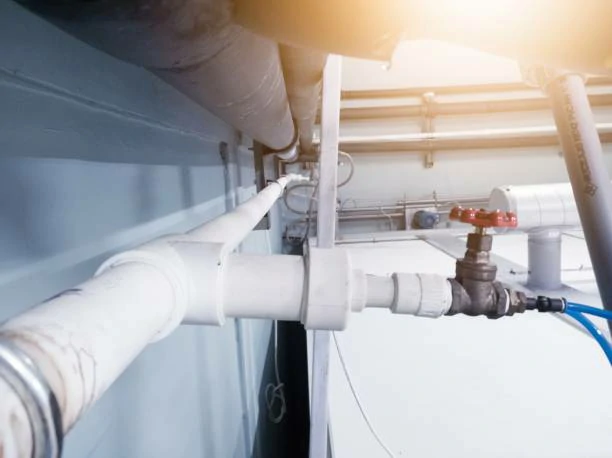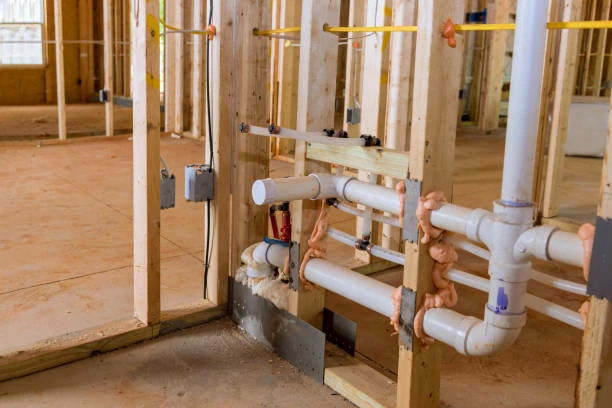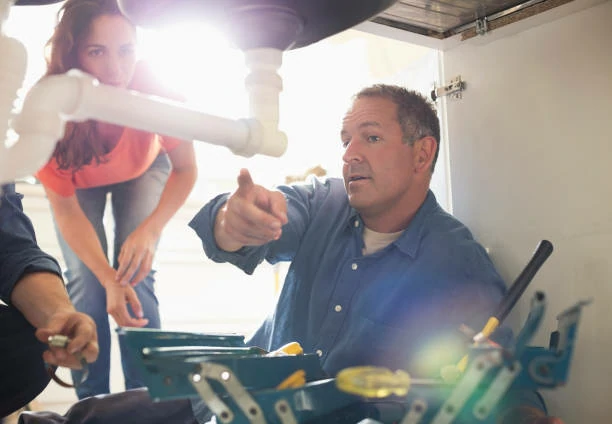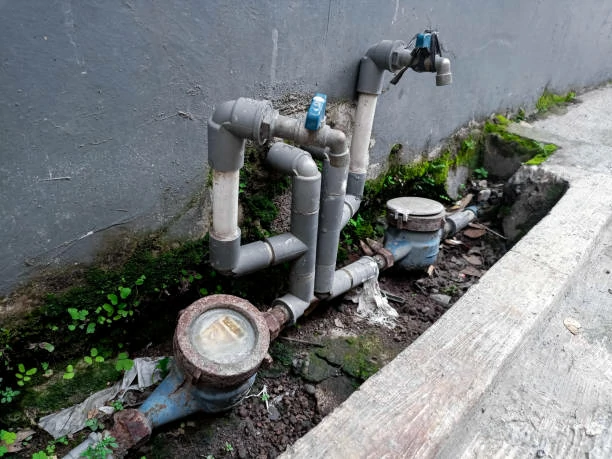PVC (Polyvinyl Chloride) tubing serves as a crucial component in numerous applications, particularly in the electrical and electronics industries, due to its excellent insulation properties. These properties make PVC tubing a reliable and versatile material for protecting wires, cables, and other components from electrical currents, heat, and environmental factors. Understanding the insulation properties of PVC tubing helps in selecting the right type for various industrial, commercial, and residential applications.
Electrical Insulation
One of the most significant features of PVC tubing is its electrical insulation capability. PVC tubing offers high dielectric strength, which measures the material’s ability to resist electric current without breaking down. This high dielectric strength ensures that the tubing effectively prevents electrical conduction, making it an ideal material for insulating wires and cables.
PVC tubing’s electrical insulation properties prove essential in preventing short circuits, electrical fires, and shock hazards. By encasing electrical wires in PVC tubing, the risk of accidental contact with live wires reduces significantly, enhancing overall safety in electrical installations. Moreover, PVC tubing maintains its insulating properties even when exposed to moisture or other environmental factors, providing reliable performance in both indoor and outdoor settings.
In residential applications, PVC tubing insulates household wiring systems, protecting them from external damage and ensuring safe operation. The tubing surrounds electrical wires, preventing them from coming into contact with each other or with other conductive materials, which could result in short circuits or electrical faults. This insulation is particularly important in areas where wires may run close to plumbing pipes or metal structures.
In industrial environments, PVC tubing protects wiring and cables in machinery, equipment, and control panels. The material’s electrical insulation properties prevent electrical interference and signal loss, ensuring that machines and systems operate efficiently. Additionally, PVC tubing’s resistance to heat and chemicals enhances its suitability for demanding industrial applications, where electrical insulation must withstand harsh conditions.
Thermal Insulation
Besides its electrical insulation properties, PVC tubing also offers effective thermal insulation. The material’s low thermal conductivity ensures that it does not easily transfer heat, which helps protect electrical components and systems from overheating. This thermal insulation property proves particularly valuable in applications where temperature control is critical, such as in HVAC systems, refrigeration units, and electronic devices.
PVC tubing reduces the risk of heat build-up in electrical systems by insulating the wires and cables, preventing them from overheating. This insulation helps maintain the efficiency and longevity of electrical components, reducing the likelihood of equipment failure due to excessive heat. For example, in data centers where large volumes of electrical cables carry power to servers and other equipment, PVC tubing helps prevent overheating and ensures consistent performance.
In HVAC systems, PVC tubing serves as an insulator for pipes and ducts, preventing heat loss or gain as air or fluids pass through the system. This thermal insulation helps maintain the desired temperature in the system, improving energy efficiency and reducing operational costs. By using PVC tubing to insulate components in HVAC systems, engineers can ensure that the system operates at peak performance, delivering reliable heating and cooling throughout the building.
Mechanical Protection and Insulation
PVC tubing also provides mechanical protection, which complements its electrical and thermal insulation properties. The material’s durability and flexibility allow it to protect wires, cables, and other components from physical damage, such as abrasion, impact, or crushing. This mechanical protection is crucial in environments where electrical systems may be exposed to harsh conditions, such as construction sites, manufacturing plants, or outdoor installations.
The mechanical insulation properties of PVC tubing ensure that electrical wires and cables remain intact and functional, even when subjected to rough handling or environmental stress. The tubing acts as a protective barrier, preventing external forces from damaging the electrical components inside. For instance, in automotive applications, PVC tubing protects wiring harnesses from the vibrations, friction, and impact that occur during vehicle operation, ensuring that the electrical system remains reliable and safe.
In addition to its mechanical strength, PVC tubing’s flexibility allows it to accommodate bends and curves without cracking or splitting. This flexibility proves essential in applications where wiring must navigate through tight spaces or around obstacles. The tubing can easily bend to fit the contours of a surface or structure, providing continuous insulation and protection without compromising the integrity of the wires or cables inside.
Chemical and Environmental Resistance
PVC tubing’s insulation properties extend beyond electrical and thermal protection, as the material also offers excellent resistance to chemicals, moisture, and environmental factors. This chemical and environmental resistance enhances the material’s suitability for a wide range of applications, including those in corrosive or wet environments.
In chemical processing plants, PVC tubing insulates electrical wiring and components from exposure to corrosive substances, such as acids, alkalis, and solvents. The material’s chemical resistance ensures that it does not degrade or lose its insulating properties when exposed to these substances, providing reliable protection for electrical systems. Additionally, PVC tubing’s resistance to moisture prevents water ingress, which could otherwise lead to electrical shorts or corrosion of the wires and cables inside.
Outdoor installations, such as those in telecommunications or utility systems, benefit from PVC tubing’s environmental resistance. The material withstands exposure to UV radiation, rain, and temperature fluctuations without losing its insulating properties. This durability ensures that the electrical system remains protected and functional, even in challenging outdoor conditions.
For example, in underground utility installations, PVC tubing encases electrical cables, protecting them from moisture, soil chemicals, and physical damage caused by shifting ground or heavy equipment. The tubing’s resistance to these environmental factors ensures that the cables remain insulated and operational, reducing the need for frequent maintenance or repairs.
Fire Retardancy and Insulation
Fire safety is another critical aspect of PVC tubing’s insulation properties. PVC is inherently fire-retardant, meaning that it resists ignition and slows the spread of flames. This fire retardancy enhances the material’s safety in electrical and building applications, where the risk of fire must be minimized.
In electrical installations, PVC tubing’s fire-retardant properties help prevent the spread of fire along wiring and cables, which could otherwise escalate into a larger blaze. The material’s ability to self-extinguish reduces the likelihood of fire-related damage, protecting both the electrical system and the surrounding structures. For example, in commercial buildings, PVC tubing insulates electrical wiring in walls, ceilings, and floors, helping to contain any potential fires and allowing more time for occupants to evacuate.
In addition to its fire-retardant properties, PVC tubing does not produce large amounts of smoke or toxic gases when exposed to fire. This characteristic enhances safety in fire situations, as it reduces the risk of smoke inhalation and allows for better visibility during evacuation. For instance, in public buildings such as schools, hospitals, and offices, PVC tubing provides a safer environment by minimizing the dangers associated with fires.
Insulation in Specialized Applications
PVC tubing’s insulation properties make it suitable for specialized applications beyond standard electrical and thermal insulation. In the medical field, for example, PVC tubing insulates and protects delicate electronic components in medical devices, ensuring that they operate safely and effectively. The material’s biocompatibility and chemical resistance also make it suitable for use in medical tubing, where it insulates fluids from contamination and maintains the sterility of the system.
In the marine industry, PVC tubing insulates electrical systems on boats and ships, protecting them from the harsh marine environment. The material’s resistance to saltwater, moisture, and UV radiation ensures that the electrical systems remain insulated and functional, even under constant exposure to the elements. This insulation is crucial for maintaining the safety and reliability of marine vessels, where electrical failures could have serious consequences.
In the aerospace industry, PVC tubing insulates wiring and components in aircraft, where weight, flexibility, and performance are critical factors. The material’s lightweight nature and excellent insulation properties make it an ideal choice for use in aircraft electrical systems, where it helps maintain the integrity and safety of the wiring in demanding conditions.
Top 10 PVC Tubing Manufacturers in the World by Revenue
| Company Name | Headquarters | Revenue (USD) | Year Founded |
| ChemChina | Haidian District, Beijing, China | 46.5 Billion | 1984 |
| Formosa Plastics Corporation | Kaohsiung City, Taiwan | 36.09 Billion | 1954 |
| Dupont | Midland, Michigan, United States | 21.57 Billion | 1802 |
| LG Chem Ltd | Seoul, South Korea | 20.04 BIllion | 1947 |
| Shin-Etsu Chemical Co., Ltd. | Tokyo, Japan | 14.2 BIllion | 1926 |
| Westlake Chemical Corporation | Houston, Texas, United States | 8.63 Billion | 1986 |
| Axiall | Atlanta, Georgia, United States | 8.6 Billion | 1985 |
| Orbia | Mexico City, Mexico | 6.4 Billion | 1953 |
| Celanese Corporation | Irving, Texas, United States | 6.29 Billion | 1918 |
| PolyOne Corporation | Avon Lake, Ohio, United States | 3.24 Billion | 2000 |
Conclusion
PVC tubing’s insulation properties make it an essential material in a wide range of applications, from electrical and thermal insulation to mechanical protection and fire safety. The material’s high dielectric strength, thermal resistance, and durability ensure that it provides reliable insulation in various environments, including those that involve exposure to chemicals, moisture, and extreme temperatures. By understanding the insulation capabilities of PVC tubing, industries can select the right type of tubing for their specific needs, ensuring the safety, efficiency, and longevity of their systems.
Contact
IFAN is a professional manufacturer with 30 years of experience, dedicated to producing high-quality plastic pipes, fittings, and valves. Our products include brass valves, PPR valves, as well as various pipes and fittings to meet different customer needs. Whether you need plumbing and drainage pipes or valve products, IFAN can provide a diverse range of high-quality, cost-effective products to support your projects. Below is our contact information.
We will reply your email or fax within 24 hours.
You can call us at any time if there is any question on our production.
For more information,pls visit our webside https://www.ifanplus.com/
Pls Mailto: [email protected]
Whatsapp: + 86 19857948982






